I'm trying to decide whether it makes cpu processing time sense to use the more complex Haversine formula instead of the faster Pythagorean's formula but while there seems to be a pretty unanimous answer on the lines of: "you can use Pythagora's formula for acceptable results on small distances but haversine is better", I can not find even a vague definition on what "small distances" mean.
This page, linked in the top answer to the very popular question Calculate distance between two latitude-longitude points? claims:
If performance is an issue and accuracy less important, for small distances Pythagoras’ theorem can be used on an equirectangular projection:*
Accuracy is somewhat complex: along meridians there are no errors, otherwise they depend on distance, bearing, and latitude, but are small enough for many purposes*
the asterisc even says "Anyone care to quantify them?"
But this answer claims that the error is about 0.1% at 1000km (but it doesn't cite any reference, just personal observations) and that for 4km (even assuming the % doesn't shrink due to way smaller distance) it would mean under 4m of error which for public acces GPS is around the open-space best gps accuracy.
Now, I don't know what the average Joe thinks of when they say "small distances" but for me, 4km is definitely not a small distance (- I'm thinking more of tens of meters), so I would be grateful if someone can link or calculate a table of errors just like the one in this answer of Measuring accuracy of latitude and longitude? but I assume the errors would be higher near the poles so maybe choose 3 representative lattitudes (5*, 45* and 85*?) and calculate the error with respect to the decimal degree place.
Of course, I would also be happy with an answer that gives an exact meaning to "small distances".
